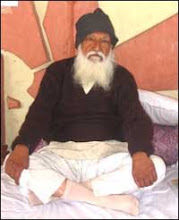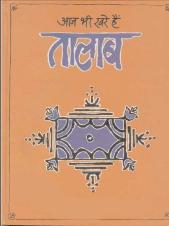Governance
25 painless ways to reduce your water consumption
Posted on 04 Aug, 2008 12:03 AM Water conservation is an important part of responsible living. Water is a precious resource which is not to be squandered. Fortunately, there are a number of really easy ways to save water without a whole lot of hassle, and some of the best are listed here!
Water conservation is an important part of responsible living. Water is a precious resource which is not to be squandered. Fortunately, there are a number of really easy ways to save water without a whole lot of hassle, and some of the best are listed here!
In the Kitchen Cut down on water usage in your kitchen using these methods. 1. Wash only on a full load: This is true for both washers and dishwashers. By washing in bulk, you'll cut down on the number of cycles you need to run. Also important to keep in mind is the fact that most dishwashers on a full load can clean dishes more efficiently than a hand wash. 2. Cut down on your disposal: Instead of using your disposal, start a compost pile for food waste. 3. Buy foods close to their natural form: Water is needed to produce just about everything from Coke to boxed mashed potatoes. You can cut down on your water consumption by avoiding processed foods that require lots of water to make.
Newsletter:Water Moves
Posted on 11 Jul, 2008 06:52 PMForwarded to the portal by: Biswanath Sinha, Sir Dorabji Tata Trust  Water MOVES is a quarterly published by Soci
Water MOVES is a quarterly published by Soci
TII-CMS India Corruption Study 2007 : Water supply services scenario
Posted on 07 Jul, 2008 09:08 AMBelow Poverty Line (BPL) households in India are made to cough up about Rs 9,000 million as bribe to avail basic and need based public services. The TII-CMS India Corruption Study 2007 focused on BPL households, mostly in rural India. The coverage of this study includes all parts of the country. The study, like the earlier ones is based on CMS-PEE model where the scope is not only limited to perceptions about corruption in general, but perception in specific context of a service and, more importantly, actual experience of paying bribe by BPL households in availing one or more of the 11 selected public services. Depending on frequency of interaction, the eleven services are divided broadly into "basic services" (PDS, Hospital Service, School Education (up to 12th), Electricity Service and Water Supply Service) and "need based services" (Land Records / Registration, Housing Service, Forest, NREGS, Banking Service and Police Service (traffic and crime). This round of India Corruption Study 2007 is designed and conducted by Centre For Media Studies(CMS) in collaboration with the Transparency International India (TII). The CMS methodology for the study involved household level sample survey, exit interviews at service delivery outlets, discussions with the concerned "service providers"in each case and observations on display of information at the service delivery points. Read more on the Corruption Study's take on the Water Supply Services in India
Environmental flows discussion-From the perspective of the National Water Academy
Posted on 02 Jul, 2008 09:31 AMParineeta Dandekar's earlier post on environmental flows, triggered several responses and we have initiated a discussion forum
Anupam Mishra's books on water - Aaj Bhi Khare Hain Talaab & Rajasthan Ki Rajat Boondein
Posted on 20 Jun, 2008 06:40 AMShri Anupam Mishra, Gandhian and environmentalist is a remarkable person. He lays no claim to copyright for his own books and (similiar to open source software) it has increased the dissemination of his message. During a recent visit to his office at Gandhi Peace Foundation in New Delhi, he showed several different editions of "Aaj Bhi Khare Hai Talaab" brought out by all kinds of individuals and publishers across the country. He recounts the story of how a impoverished young person was inspired to translate it into Punjabi and get it published.
Buying an apartment? Demand better water management from the builders
Posted on 05 Jun, 2008 04:30 AMWe at the Water Portal, came up with some questions to ask the builder when you are buying an apartment. The more educated you are regarding the way the apartment is handling water, the better decision you are likely to make and one that will benefit you immensely in the long term.
International conference on water policy in South Asia held, SaciWATERs, 18-21, Dec 2008, Colombo
Posted on 30 May, 2008 10:10 AM SaciWATERs, South Asia Consortium for Interdisciplinary Water Resources Studies is organising an International Confe
SaciWATERs, South Asia Consortium for Interdisciplinary Water Resources Studies is organising an International Confe
Training on "Markets & marketing for livelihood practitioners" by Parivartan in New Delhi, 18-20 June 2008
Posted on 20 May, 2008 05:27 PMForwarded to the Portal by : Amrat Singh, PARIVARTAN  A new training programme has been launched by Parivartan.
A new training programme has been launched by Parivartan.
Invitation for joining URAN PSI group
Posted on 18 May, 2008 10:48 PMSeveral threats have emerged in recent years to the pristine Himalayan rivers of Uttarakhand. These include: (i) the proposed construction of 220 dams (ii) the drying up of rain fed rivers due to deforestation and deforestation of their catchments (iii) release of untreated sewage from river side towns and habitations and (iv) illegal sand mining of river beds.
Prof.G. D. Agrawal's satyagraha against the construction of dams on the Bhagirathi River
Posted on 17 May, 2008 09:08 AM
Pained by the unrelenting destruction of the Ganga river, especially by a series of dams in its upper reaches, Dr G.D. Agrawal, India's pre-eminent environmental quality scientist and a legendary Professor (and HoD) of Civil & Environmental Engineering at IIT-Kanpur. (Access:Biography Sketch Here) has decided to go on a fast-unto-death to oppose its continuing desecration. His conviction that we are staring at an unprecedented ecological and cultural catastrophe comes from his powerfully logical mind. Critique on proposed dams on Bhagirathi River. Access here: Critique on Dams







